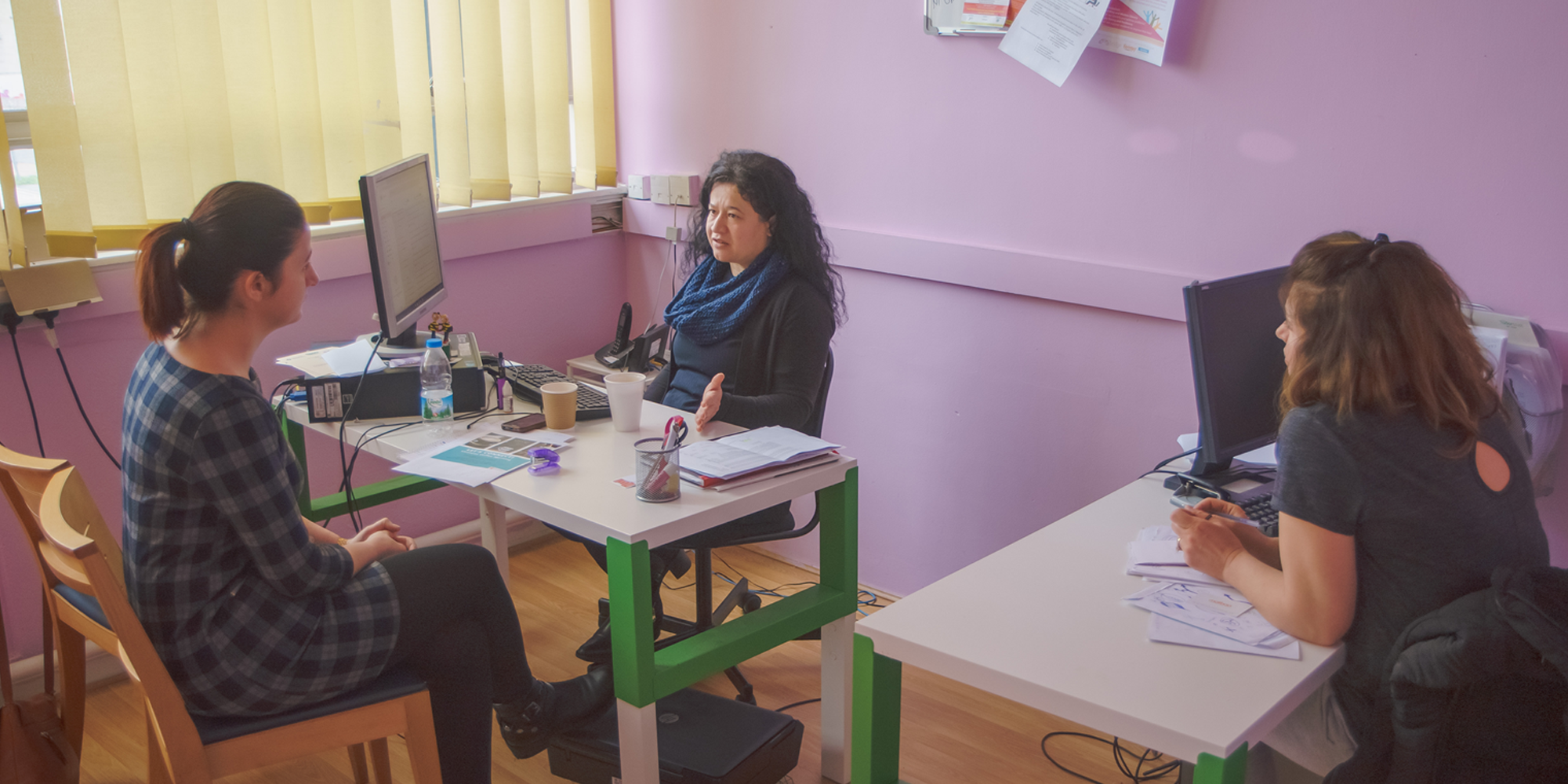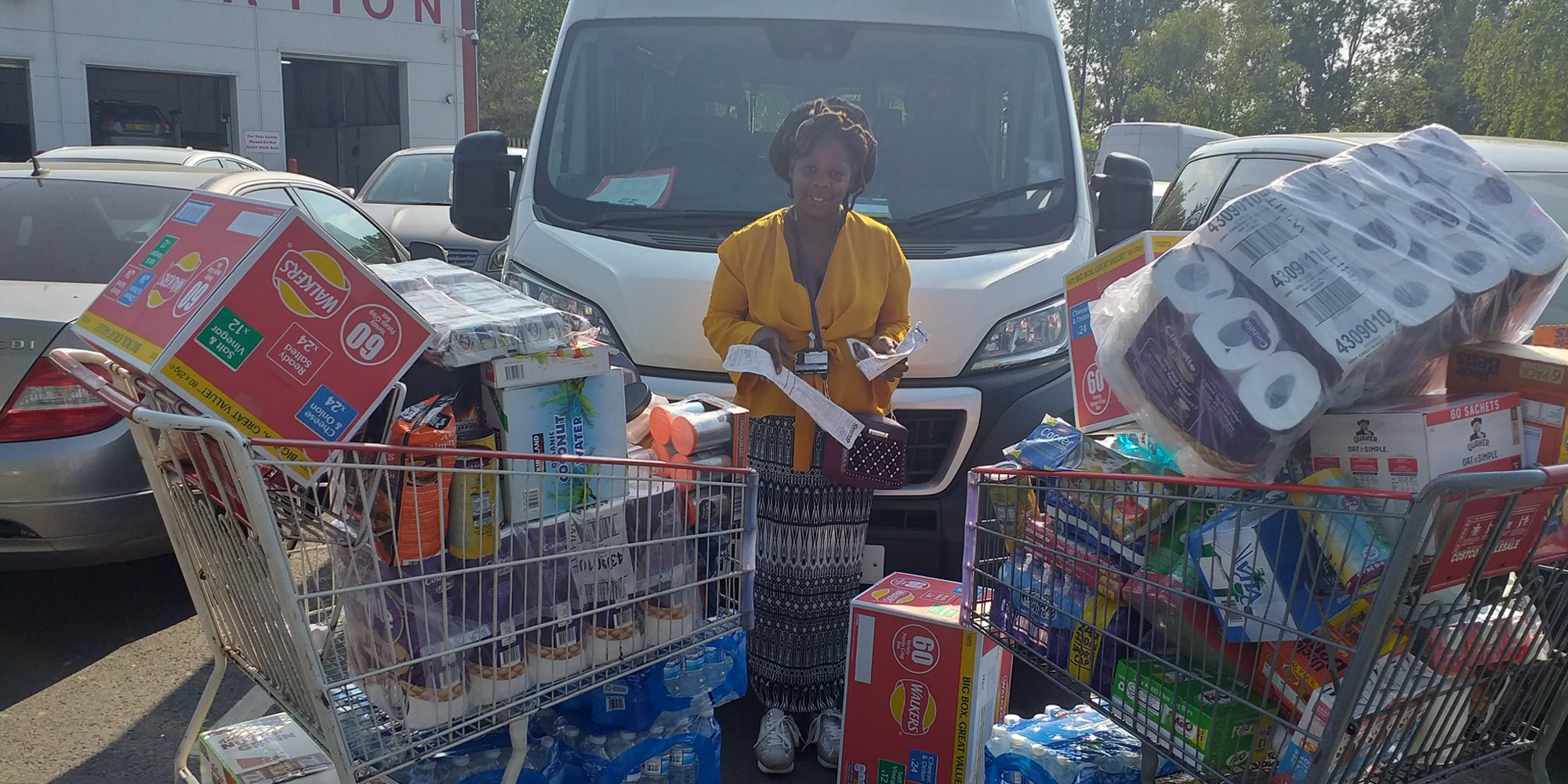
Supporting the violence against women and girls (VAWG) grassroots sector is a core area of commitment at The London Community Foundation (LCF). We have a long history of funding grassroots organisations supporting diverse groups of women and girls.
I started in March 2020, just before LCF was due to launch the VAWG Grassroots Fund, managed on behalf of the London Mayor’s Office for Policing and Crime (MOPAC). The COVID19 pandemic has meant that, quite rightly, our immediate focus has been on providing emergency response funds to all our grantees.
As the VAWG Grassroots Fund Coordinator, my focus has been on supporting LCF colleagues as we focus on providing emergency response funding, including to the VAWG grassroots sector. As has been reported in the news, COVID19 situation in the UK has meant that many charities, grassroots organisations and community groups are facing an increased demand for service provision and support to their local communities and beneficiaries.
For the VAWG sector, this experience is further amplified by the lockdown policy, where across the UK, we have seen there is an increase in use of domestic abuse helplines. Recent statistics show that since the lockdown began, there is a 49% increase in calls to national helplines and the VAWG sector is need of operational support in order to meet demand.
Over the last couple of weeks, we have kept in touch with our grantees, asking them what support they need, how they are adapting and how their services have been impacted by COVID19. Speaking with our grantees in the VAWG sector, specific recurrent themes have become apparent in relation to adapting working practices:
- Withdrawal of all but essential face to face services: Organisations who support high-risk clients will be prioritising essential services such as providing food and washing facilities. Some small, non-urgent services have been postponed.
The withdrawal of all but essential face to face services has led to increased concerns for support gaps for those most at risk who feel unsafe to engage in support from home - some might not have the confidential space to engage with a remote service. There is also concern across the sector that with face to face community outreach having ceased, many women struggling to cope with abusive situations are unable to contact support services.
Many services have moved to remote delivery of one on one services such as telephone and Whatsapp video appointments, email and text message support. For example, group therapy, a core service option for many of our VAWG organisations, has been suspended to focus on the highest risk clients. However, some organisations are continuing group work through online tools such as video sessions on topics such as self-isolation and reducing the risk of abuse.
- Refuges remain open: those running refuges are following NHS guidance to keep women and children are safe and well, interrupt the transmission of the virus and mitigate the spread and risk. They are also seeing an increase in the number of referrals but do not expect to have the capacity to accommodate new residents for at least the next few weeks.
- Adapting business processes: most organisations have adapted quickly to remote working and set up new systems and processes for staff and volunteers, such as telephone clinical supervision, using Slack for sharing experiences, knowledge and training or Zoom for daily stand-ups.
At the moment we are doing all we can to make sure that even though we can’t see clients face to face we can still provide support, either 1-1 or group support via phone and Whatsapp.VAWG organisation
- Up to date and responsive signposting: organisations need to know where they can signpost clients as support available changes daily and new services are being created quickly such as local Foodbanks and welfare benefit changes.
- Reduced capacity for outreach: many staff, volunteers and their family members have had to self-isolate, are unwell or are caring for family members, leading to reduced capacity across the sector.
- Language and culturally specific guidance: cultural and language-specific guidance needs to be provided to BAME and other minoritized communities to ensure existing gaps in services are not exacerbated. Some organisations are starting to develop this for advice on benefits, health and wellbeing, and activities for school children in self-isolation.
How LCF is supporting grassroots organisations adapt & deliver services as part of their emergency response
We have renewed our commitment to ensuring grassroots organisations receive the support they require at this time and have been working with other funders to provide funding support through the London Community Response Fund. The fund aims to provide financial support for grantees in London, in a range of areas including immediate crisis response and support in adaptation of service delivery.
We have been encouraged that many VAWG grassroots organisations have applied and been approved for emergency response funding, which has meant service delivery to those most in need can continue.
One such grantee is Sistah Space, a grassroots BAME-led VAWG organisation that works to meet the needs of African heritage women and girls in London, provide tailored support to those affected by domestic violence (DV). LCF provided them with a £4,300 grant from the London Communities Coronavirus Appeal via the London Community Response Fund to meet increased demand for food, hygiene and toiletries to support DV victims.
In a recent interview with staff from Sistah Space, they spoke about how support from LCF through the London Community Response Fund, came at a crucial time:
Funding from LCF through the London Community Response fund has allowed us to operate in a way that is most beneficial to our client base. Our clients were delightfully surprised and extremely grateful when we purchased specific African and Caribbean foods. The Shea butter, black soap and other products were purchased wholesale and all of our service users received their 'essential' goods.
Such feedback from our grantees is encouraging and supports our belief that we can are strategically positioned to support grassroots organisation in London meet the needs of their communities. Continued support from our donors through our London appeal has also meant that we have a range of funding mechanisms through which we can meet the needs of grassroots organisations.
How can you help?
We have launched the London Communities Coronavirus appeal, to ensure we are positioned to provide even more support to our grantees through a breadth of funding mechanisms. You can support us by donating here. All funds raised goes directly to supporting grassroots organisations on the frontlines in our local communities.

